Slipped Disc: What is it and can chiropractic help?
Slipped (herniated) discs can be a source of debilitating pain and discomfort. We explore whether chiropractic care can offer relief and support.
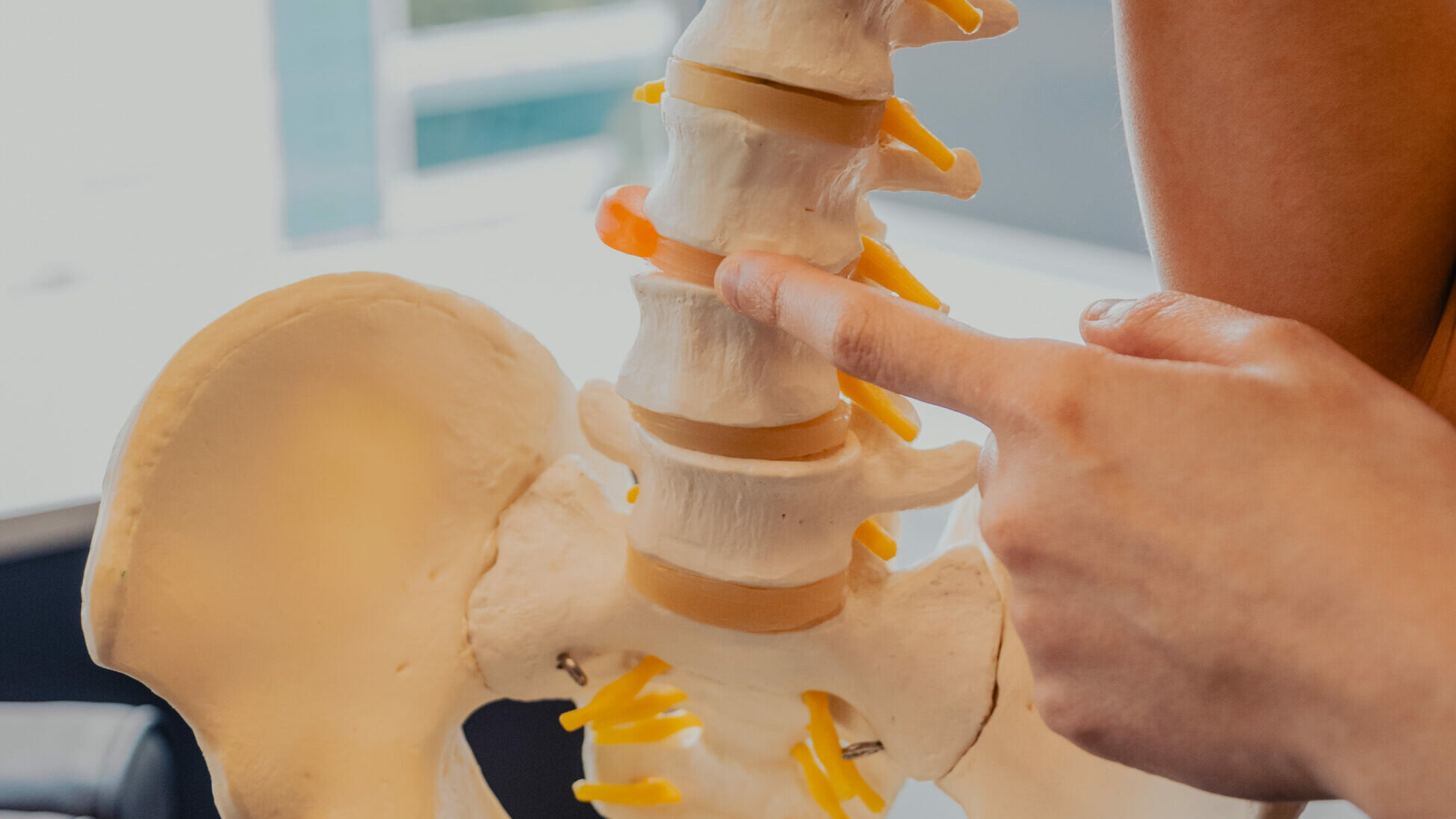

A “slipped” disc occurs when the outer layer of the disc cracks or ruptures, exposing the inner jelly-like substance to protrude out.
Chiropractic care focuses on non-invasive methods, such as spinal adjustments and targeted exercises, which can effectively alleviate pain associated with herniated discs, often offering a conservative alternative before considering spine surgery as a last resort for treatment. This approach emphasises natural healing and the body’s ability to recover without the need for surgical intervention.
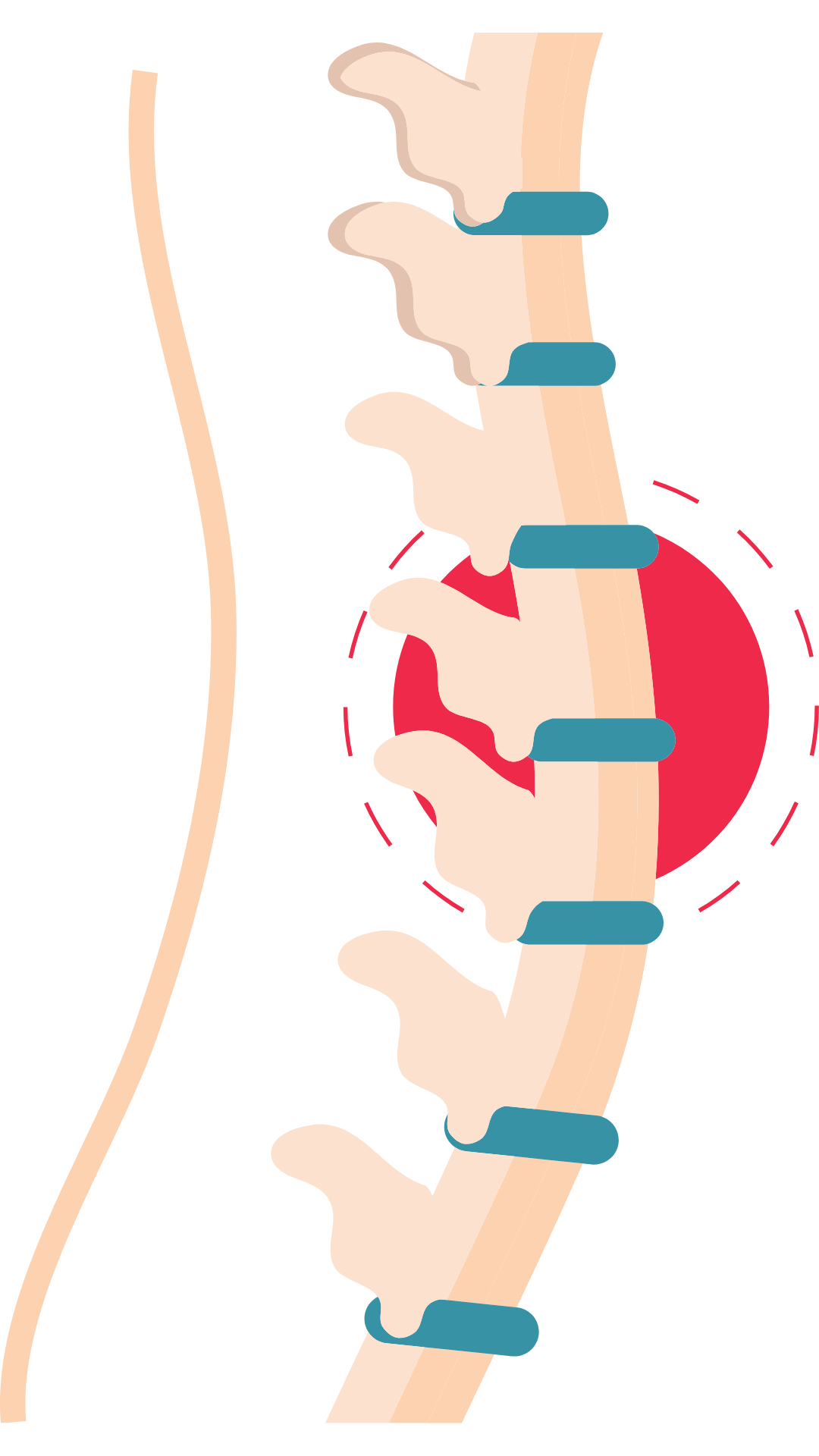
Your spinal discs are one component of the complex series of structures that comprise your spine. Think of your spinal discs as shock-absorbing pads between your spinal bones. These pads help to guide the motion of your spine and to provide support to your spinal joints.
Each disc comprises 2 components – an inner jelly-like portion and a tough outer ring. When your spinal bones fall out of alignment, those misalignment bones will cause abnormal, unbalanced and increased stress to your discs. This asymmetrical force can further weaken the structural integrity of your discs, eventually causing the inner jelly-like substance to bulge, herniate, protrude or potentially prolapse (discs don’t really “slip”) through the outer ring.
This causes pain, numbness, and tingling when the herniated disc compresses on your spinal nerve.
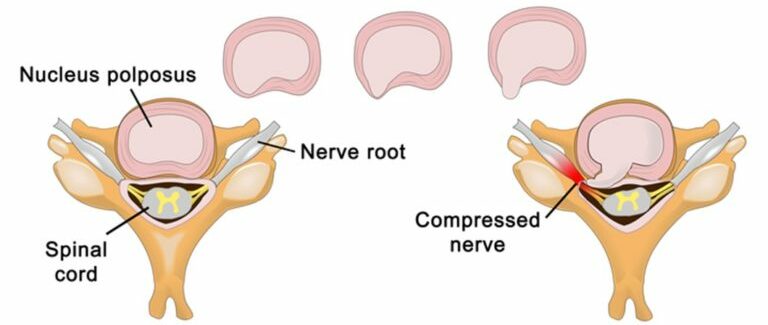
A slipped disc can occur in any part of your spine. However, the lower back is one of the more common area for slipped discs. Symptoms of a slipped disc include:
These symptoms would usually persist for a prolonged period of time, and does not get better with home remedies or treatment. However, even if you are experiencing these symptoms, they are not tell-tale signs of slipped disc, and it is important to do a full check-up to find out if you are really suffering from a slipped disc.
In general, poor posture places extra pressure on different parts of the spine and can result in a spinal misalignment. The problem becomes acute when the pressure is constant and the action repetitive.
Coupled with ageing that causes natural stiffness developing throughout the body, poor posture can expedite degeneration of the outer ring of the disc, leading to a slipped disc.
Overweight individuals are also at increased risk of slipped disc as their spine must support additional weight.
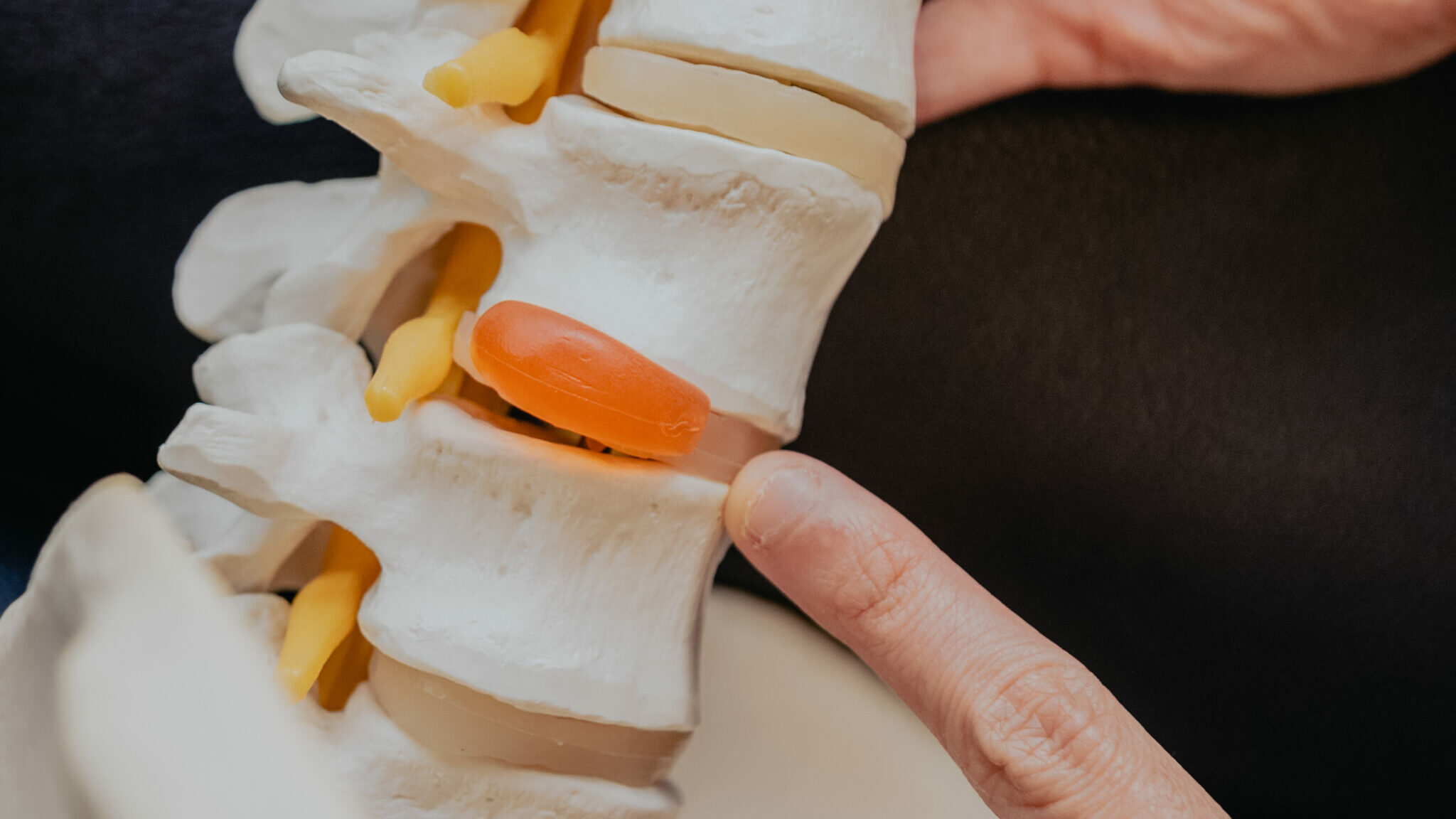
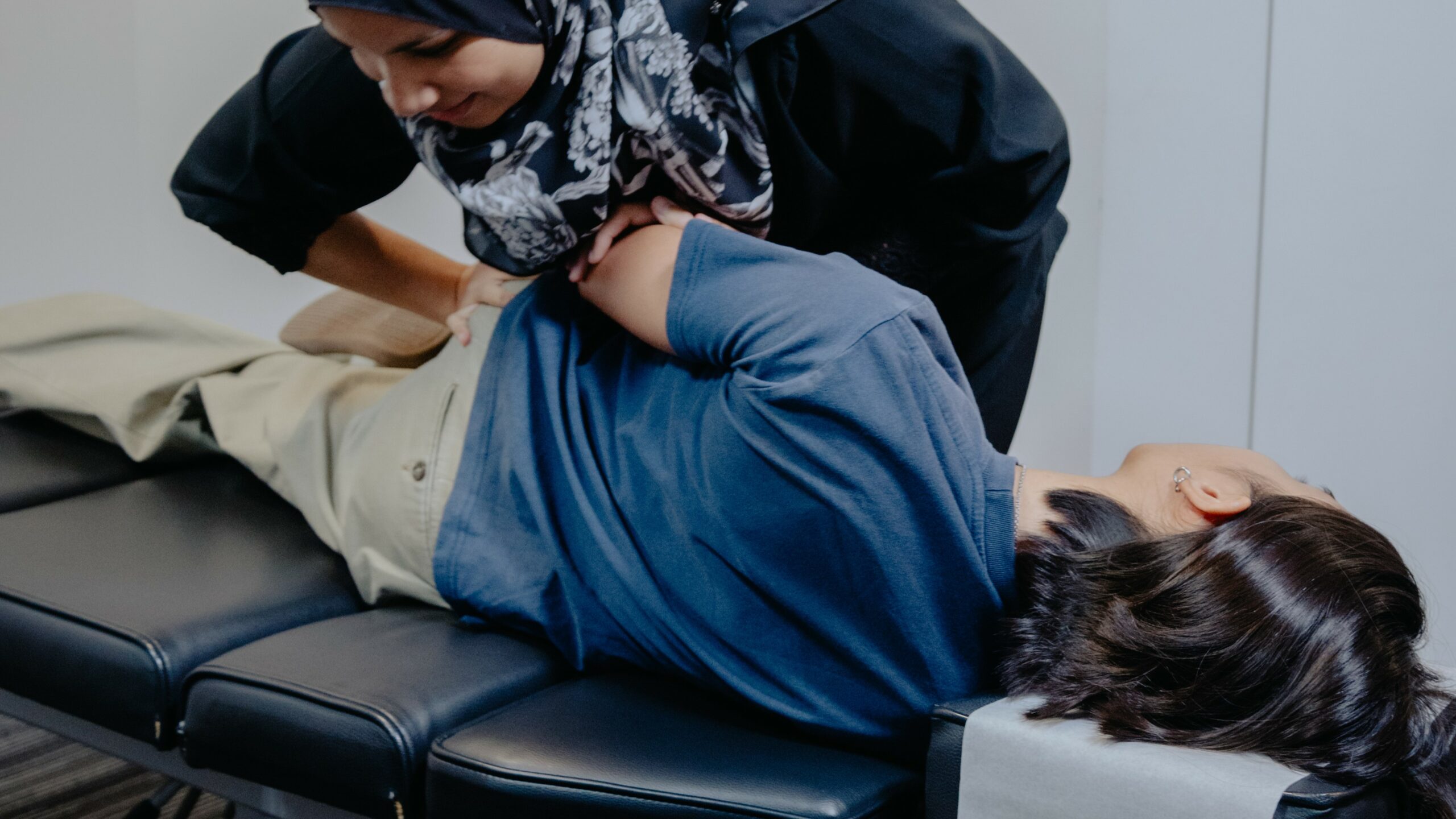
You should seek help for your slipped disc as soon as you experience symptoms or suspect you have this condition, as slipped discs can be serious and have long-term ripple impacts on your health. It is advisable to consult a healthcare professional early on to assess your condition and begin appropriate care, rather than allowing it to worsen and potentially necessitate more invasive treatments later. Prompt intervention can often help avoid invasive treatments like surgery and promote a quicker and more effective recovery.
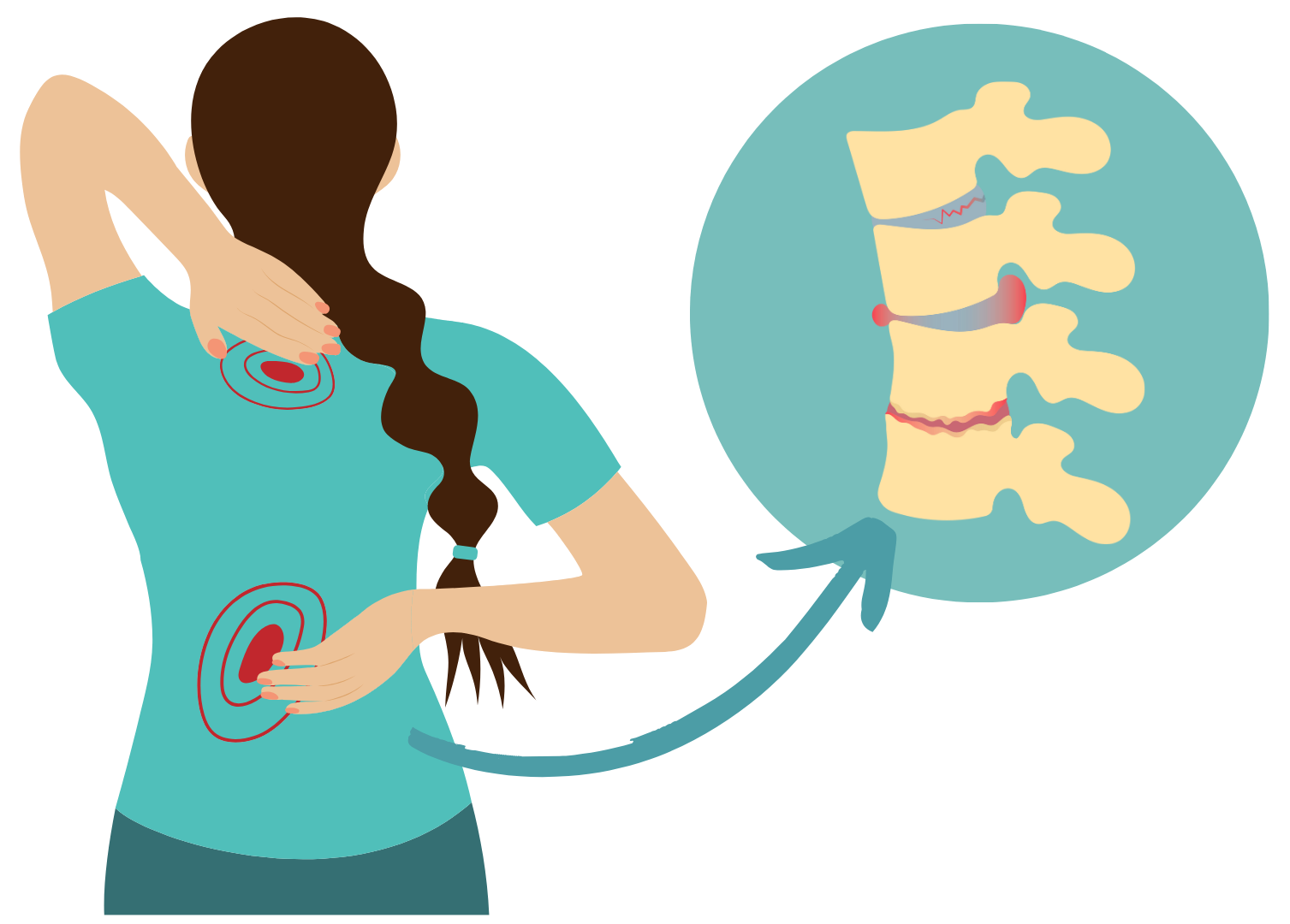
This depends on the severity of the slipped disc and whether it is compressing on a nerve. The healing process can take a few weeks with adequate rest, heat or ice, and simple exercises to alleviate the pain.
In extremely severe cases, doctors may recommend steroid injections at the site of the pain to ease swelling, or surgical treatment to prevent further nerve damage.
Fortunately, surgery is not required for most of the population with slipped disc. However, it is common for symptoms of slipped disc to relapse even after recovering from the first episode.
There are a few approaches to manage the pain of slipped disc without turning to surgery or medication:
Avoid strenuous physical activity. Minimise prolonged periods of sitting or standing. This allows the body to naturally heal and recover.
Focus on exercises that:
Chiropractic care focuses on addressing the spinal misalignment that may have caused the slipped disc.
It involves chiropractic adjustments to alleviate nerve compression and Provides pain relief and helps prevent further degeneration of the condition. This is why chiropractic care is considered a great non-invasive alternative to surgery.
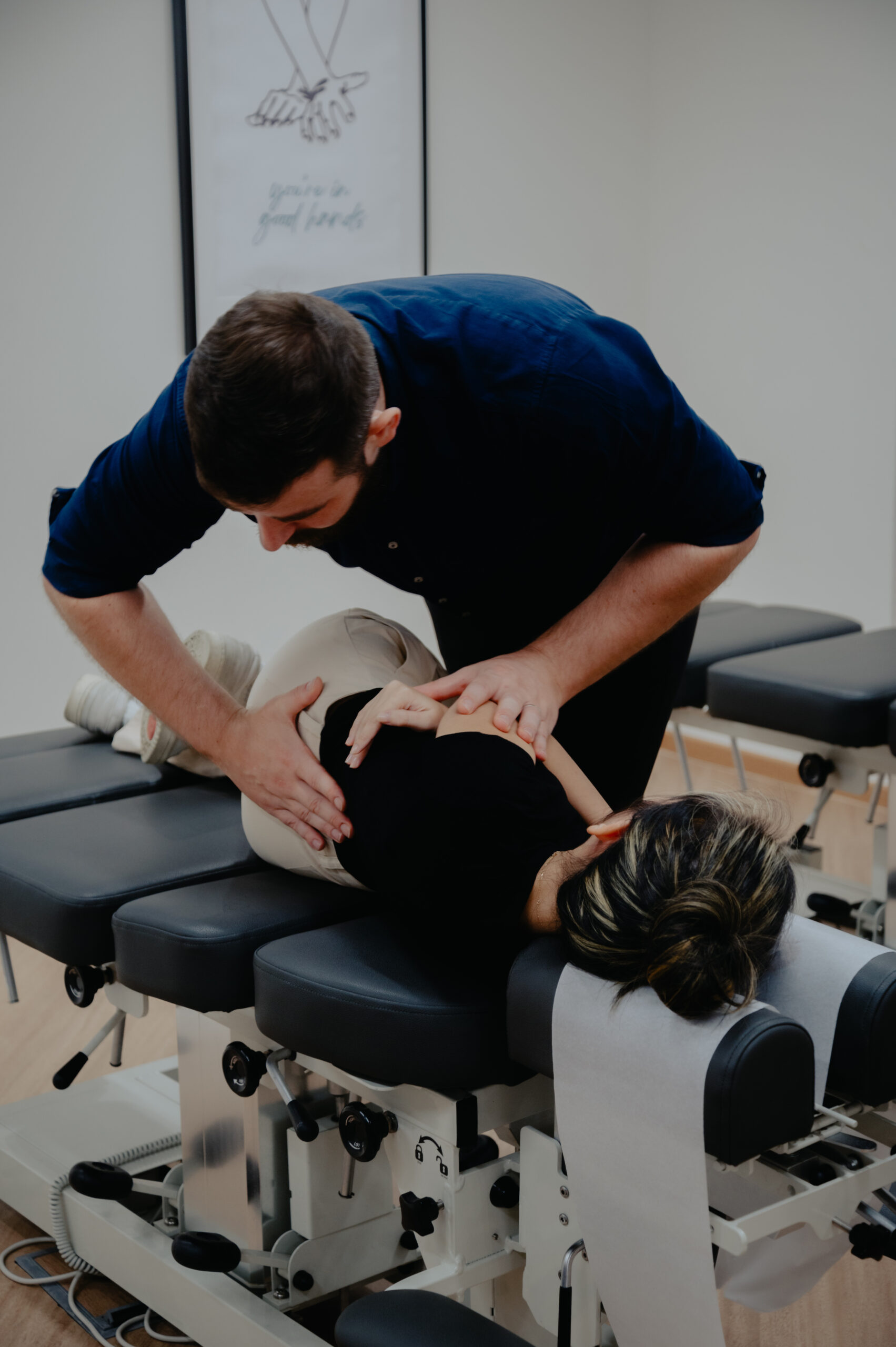
Chiropractors are trained to adjust spinal misalignments for individuals with slipped discs due to unbalanced and increased pressure placed on the disc.
Chiropractors are trained to manage conditions such as slipped disc, and can not only help alleviate the pain but help you address the root cause of the slipped disc. This is done through regular chiropractic adjustments that address your spinal alignment and reduce any compression on the affected nerves.
Chiropractic is not a quick-fix for slipped disc, and one adjustment will not solve the problem. Think about your teeth – it took them years to be misaligned and it takes a long process through bracing to get back the proper alignment. Likewise, it takes time for your body and neck to respond to chiropractic adjustments and feel the relief you seek.
The number of adjustments required to find relief of your slipped disc depends on the following:
We have helped many members who find relief after their first few adjustments, while others take a few months.
At Chiropractic Singapore, our focus goes beyond just pain relief. We seek to address the root cause of the problem, typically through regular adjustments (e.g. 1-2 times per week) and a tailored exercise & stretch plan over a few months.
If your pain has been persisting for more than a few days and is not responding well to home treatment or medications, you should come in for a check-up. It is important to address the root cause of your pain to prevent it from worsening.
At Chiropractic Singapore, our chiropractors are trained to address slipped disc and recommend if and how chiropractic can help.
Note: The above information is not a substitute for a diagnosis or any form of medical care. Symptoms and treatments differ from person to person, and one should consult a chiropractor for an accurate diagnosis and recommendation.
A pain-free 2026 starts with understanding your spine.
Get your spine checked for 75% OFF, at just $26 (U.P. $105)!
Available at all 5 clinics islandwide till 31 Jan 2026.
Enter your e-mail to start the booking process.
Enjoy $55 off your first check-up (U.P. $105) using the promo code ONLINE50 at check-out.
Pssst… is it your birthday this month? Click here for an exclusive deal 
Enter your e-mail to start the booking process.
Note: X-rays and the first adjustment are not included in this promotion. For the safety of our patients, there will be no adjustments during the first visit.